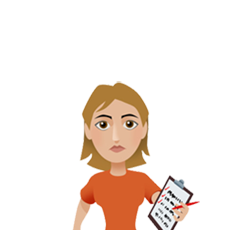Creative Minds Crave Structure: Fueling Inventiveness

Creativity
The word conjures up visions of avant-garde artists splattering paint across huge canvases. Dance troops rehearsing wild choreography. New Age musicians producing bizarre dissonance from weird instruments.
The word "Creativity" does NOT tend to trigger visions of a child organizing his school locker, an entrepreneur laying out her schedule, or a dentist repairing a tooth.
Creativity seems to be a mysterious, fickle gift that allows eccentric visionaries to tap into some exotic, ephemeral realm.
Today more than ever, creativity is highly prized. “Innovation” is something that huge corporations say they want, and huge bureaucracies suffocate slowly.
We're wallowing in creation and creativity. Our universe, our world, our society at it's best and worst, are all creations. Heck, we are creations. Each of us. Ongoing creations who create ourselves.
It's everywhere. All around us. And we don't notice.
Creativity is a Process
Now, I'm not going to suggest that creativity is mundane or pedestrian. It is indeed miraculous. But after a lifetime of creating everything from television shows to household renovations to a couple of kids, I have come to believe that creativity is a process.
Consider Creativity as a way of seeing at the world. A mindset. Then it becomes clear why those of us who have ADHD neurology tend to be more creative.
As an aside: Yes, we are more creative. On average. A number of recent studies have confirmed it. A University of Memphis study found ADHD students score higher than their Non-ADHD peers on 11 standard tests for creativity. (White & Shah, 2005)
As an aside to the aside: Surprisingly, ADHD medication didn't improve or hinder creativity.
We know ADHD is an issue of dis-regulation. As our thoughts ricochet about, helter-skelter, so do our emotions, our actions, and eventually, our lives.
So, although ADHD folks are more creative, do we produce more creative works? Does our ADHD give us more creativity, and yet undermine our productivity?
Luckily I found a career that played to my creative strengths. Writing comedy came naturally to me. Despite being very prolific, or maybe because of it, I feared that someday I would encounter the dreaded monster… WRITER'S BLOCK!
I knew that this malevolent, mysterious Black Box had killed the careers of some great writers, and robbed many others of years of productivity. Writers who were far better than me. (Or is it ‘than I?' See, as a writer, I should know that.)
What if my torrent of ideas suddenly dwindled to a trickle? I envied lawyers and doctors. They had books detailing the rules of their profession. The idea that writing comedy had rules and structures, or that doctors and lawyers were creative in their fields, never occurred to me.
To protect myself, I learned wiring, plumbing, and carpentry, telling everyone it was to save money on renovations, but secretly believing if my funny-bone gave out, I could ‘get a real job.'
Article continues below...
Want to Motivate Kids?
Download a free tipsheet "The Parent's Guide to Motivating Your Complex Kid" to help your child find the motivation to do... anything and everything!
Creativity is a Muscle
Nowadays I don't dread burnout. Because I see creativity as a muscle. The more you work it, the stronger it becomes.
As for Writer's Block? It's a fantasy. There is no mythical black-box that somehow appears, blocking unlucky authors from their inspiration. What causes creative constipation is simply the fear of failure.
I've known a lot of writers. When they start believing they have to be better than the last time, and can't produce something that's bad, or simply so-so, they are doomed. You second-guess yourself into a creative coma. Like a tennis pro who misses an easy shot, doesn't shake it off, and lets it natter away at him, distracting him until he is no longer ‘on the court', figuratively, and then literally.
Luckily I've failed so many times I know the universe doesn't come to an end, and the world only cares about my next success.
That said, creativity does involve something that seems mystical.
Trusting Intuition
Creativity requires sensing something new and being willing to consider it, in the face of a torrent of reasons why it ‘cannot possibly work.' This is crucial. Every idea is ridiculous until you do it. Whether it's an idea for a TV show, or a strategy for finishing a school project.
The impulsivity that comes with ADHD is what allows us to entertain ideas that others would dismiss. Our stop signal doesn't work. We don't consider the consequences.
That spontaneous nature, which can sometimes lead us into overwhelm, is what allows us to embrace seemingly illogical ideas, long after others would have come up with 17 reasons why, “That can't possibly work.” If ADDers are an ‘Automatic Yes' to anything new, many people are an ‘Automatic No.'
Ironically, thinking up those 17 reasons is an act of creativity, albeit driven by fear of change, rather than a thirst for novelty.
Creative people don't ignore the 17 reasons why this can't work. We see them as challenges. Ones we can use our creativity to overcome. Problems to overcome. Puzzles. Games. Fun.
It is a fine balance. A balance between being a ‘Yes!' to everything and a ‘No!' to anything.
Don't get me wrong, neither is better. Sometimes saying, ‘No, that's a bad idea,' can save your life. But if yes or no are your universal response to change, you will never create anything.
Obviously the ‘Automatic No' person will never start anything. But the ‘Yes To Everything' person will start everything and never finish anything. Either way, nothing changes.
Creative Minds Crave Structure
Structure. Deadlines.
It's a myth that creative people loathe structure. Mozart had 88 keys on his piano, 4 beats to a bar, and specific deadlines imposed by his patrons. Shakespeare wrote in the very regimented structure of Iambic-Pentameter. When he couldn't find just the right word, he created a new word. Hundreds of them. But he created inside a rigid structure.
So while ADHD people may score higher in a Psychology Lab Test, do they produce more creative works? Some do.
In my own experience, and observing many creative people, without structure, nothing happens.
With structure, with deadlines, with goals, my productivity soars. And that aimless mental meandering is put to work. The relentless motion of the ADHD brain is given direction, instead of running in circles it races forward, making progress; eventually perhaps creating a symphony, or producing a happy, successful child.


